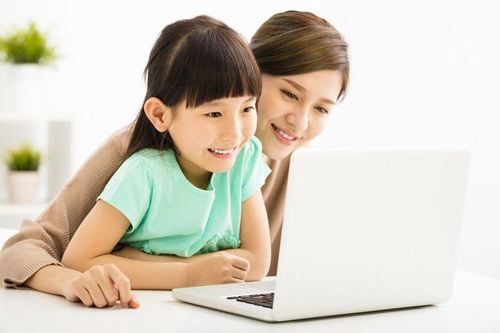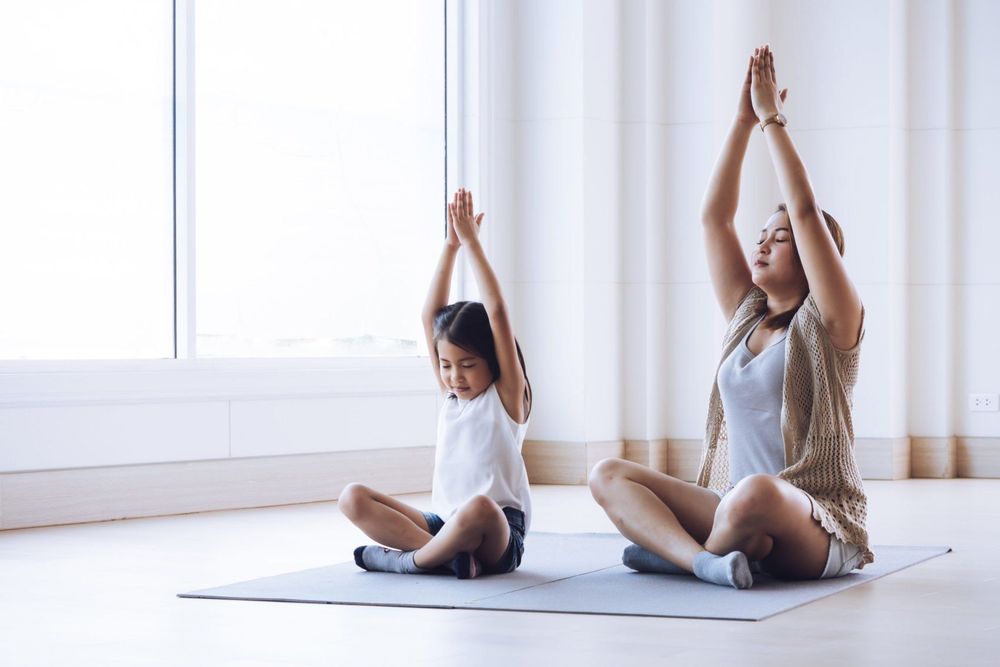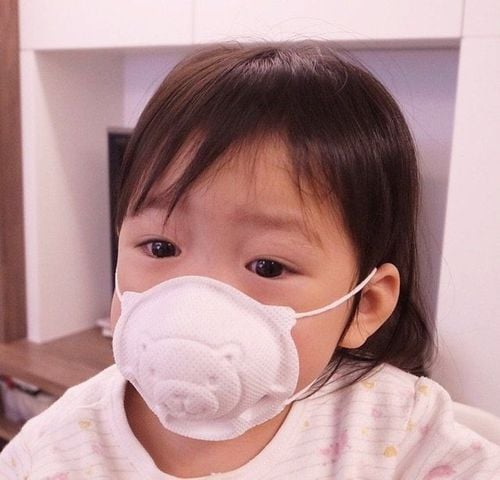This is an automatically translated article.
In many parts of the world, children are staying home from school to help reduce the spread of COVID-19. While this is an important way to prevent disease, it can have an impact on everyday life, especially for children. Therefore, parents need to know how to properly care for their children during the anti-epidemic days at home, ensuring the children's learning and the health of the whole family.
1. Talk to your kids about the pandemic and why they have to learn from home
As the media grows so powerfully to spread the word about COVID-19 prevention, children are fully aware that something big is happening right now. By being open and honest in ways that are developmentally appropriate for children, parents need to keep children informed of what is going on and why schools are closed and children need to learn at home. This will help parents provide their children with coping skills they will use throughout their lives to deal with future events.
To put this in a simple way for kids to understand, parents can explain to their kids that there are some new germs in the environment and everyone, like parents out of work and kids out of school, Stay indoors to reduce their spread. In addition, adults need to let children know that we are all still learning about it, and are doing everything we can to make sure everyone is safe and healthy, to avoid causing anxiety and fear. for children.
The fact that adults give children information about the epidemic will help children play a role in the whole family's participation in the fight against the epidemic as well as make it easier to care for children at home. Parents start by reminding children to wear a mask, cover their cough or sneeze with their elbow or tissue, and throw it away. Besides, children also need to know how to wash their hands properly and turn it into a fun game by using a song to make sure children wash their hands with soap for 20 seconds under running water.
It is also important to teach children to always be kind to others. Let your child know that anyone can get sick from the virus and that those who get it may need to be isolated, but not discriminated against.
2. Maintain your child's learning at home effectively
To do this, it is essential that parents keep the structure of their children's day the same as before the epidemic. Children need to wake up on time, participate in all subjects in class as well as sports activities. Thus, parents need to prepare everything ready for a day like when children go to school, including uniforms or preparing lunch before and snacks and soft drinks in between.
Chăm sóc trẻ tại nhà với cách duy trì việc học cho trẻ
Here are ideas on how parents can help their children focus and have fun learning at home:
Ask each child to create a personal goal they want to accomplish by the end of the school year, starting with goals every day, every week. If your child is doing well, encourage them to talk about the rewards they want to receive. Create a focused learning environment for children with appropriate sounds and lights. Furthermore, parents can also make learning more enjoyable by having them move to different rooms in the house for different subjects similar to going to school. Allow children the freedom to explore and create with what interests them. Household items can become experimental equipment for children. Regularly pose a question, quote, or quiz during the day for your child to find the answer to. Encourage children to have time to read Create conditions for children to keep in touch with friends in the class by social networks so that children can discuss and exchange lessons. Plan your end-of-school year celebration online. Finally, parents need to consult their child's teacher when there are any difficulties during homeschooling.
3. How to do physical training for kids at home
When schools, sports centers or children's playgrounds are closed because of the COVID-19 crisis, it will be difficult for parents to care for young children at home, especially for hyperactive children, love running, jumping and playing outdoors.
The following suggestions will help parents overcome these obstacles:
Think creatively about what activities your child can do at home. The child may not be able to play a particular sport, instead, the parent suggests that the child choose other activities to practice or can develop similar skills, such as aerobics, Lift weights, jump rope indoors. Let children play with siblings in the house. Younger children may not throw or kick the ball with the best passes, but older children can practice catching and catching the ball. Encourage the whole family to exercise together. Find exercises on the internet or TV and do them together as a family.

Chăm sóc trẻ tại nhà với những hoạt động thể chất thiết thực
4. How can parents keep the balance between work and childcare at home?
If you are working remotely, there are a few principles that parents need to follow so that they can both safely care for their children at home during the epidemic season and ensure work efficiency:
Set feasible expectations specifically to help maintain a balance between work and family, avoid mental stress Build clear boundaries. Let your spouse or other family members know at certain times of the day that you need to focus on work. Create a new “quiet zone”. A common area like the living room or the kitchen table can be a newly built quiet area during work hours or class time in a school for the kids who live in the house. This is helpful as it can provide more space for children to focus on studying or engaging in other activities, such as reading, writing assignments or drawing pictures. Care coordination. If a spouse or other family member is at home, develop a schedule to help manage younger childcare more effectively, avoid one person being overworked, and meet other family or work needs. Participate in recreational activities, be physically active together. When parents and children work and study together at home, the space becomes more cramped. Therefore, when we use our time together for the same purpose, everything will become more efficient, and family feelings will also be stronger. In short, taking care of children at home during the epidemic season is a challenge for parents when both ensuring the requirements of disease prevention and maintaining their children's education as well as their own work. However, the above guidelines for proper child care will help parents to partly choose the right method for their family, favorable for the natural development of the child in the "new normal" life.













